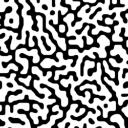Yahoo Answers is shutting down on May 4th, 2021 (Eastern Time) and beginning April 20th, 2021 (Eastern Time) the Yahoo Answers website will be in read-only mode. There will be no changes to other Yahoo properties or services, or your Yahoo account. You can find more information about the Yahoo Answers shutdown and how to download your data on this help page.
Trending News
integrate Taylor series function?
I am writing a algorithm to test how fast the area under a function can be found. My function is e^(-x^2). when i integrate the function from -3 to 3 i get about 1.77241. Next i tried to compute the area of the function again, but i converted the function to the first 5 non zero terms in the taylor series. I got: 1-x^2+x^4/2-x^6/6+x^8/24+O(x^9) where O(x^9) is the error. when i integrate 1-x^2+x^4/2-x^6/6+x^8/2 from -3 to 3 i get 2119.46 which is not even close to the real integral. how do i compute the area under the taylor series version of the function to get a similar answer to 1.77. Shouldnt the regular function and the taylor series function be equal (except for the error term), which would make the integrals equal???
2 Answers
- JLv 71 decade agoFavorite Answer
First, the Taylor series should have x^8 / 24 at the end, not x^8 / 2 as you show. Second when you integrate the corrected Taylor series from -3 to 3 you get 114.707 which is still not close to 1.77241. The problem lies in the error term. You have pretty good fit between -2 and 2 but the error is huge as you get further away from 0. You have to take MANY more terms.
- JOS JLv 71 decade ago
In need to expand the Taylor Series to 50 terms to get the correct approximation
which is
1.77104




